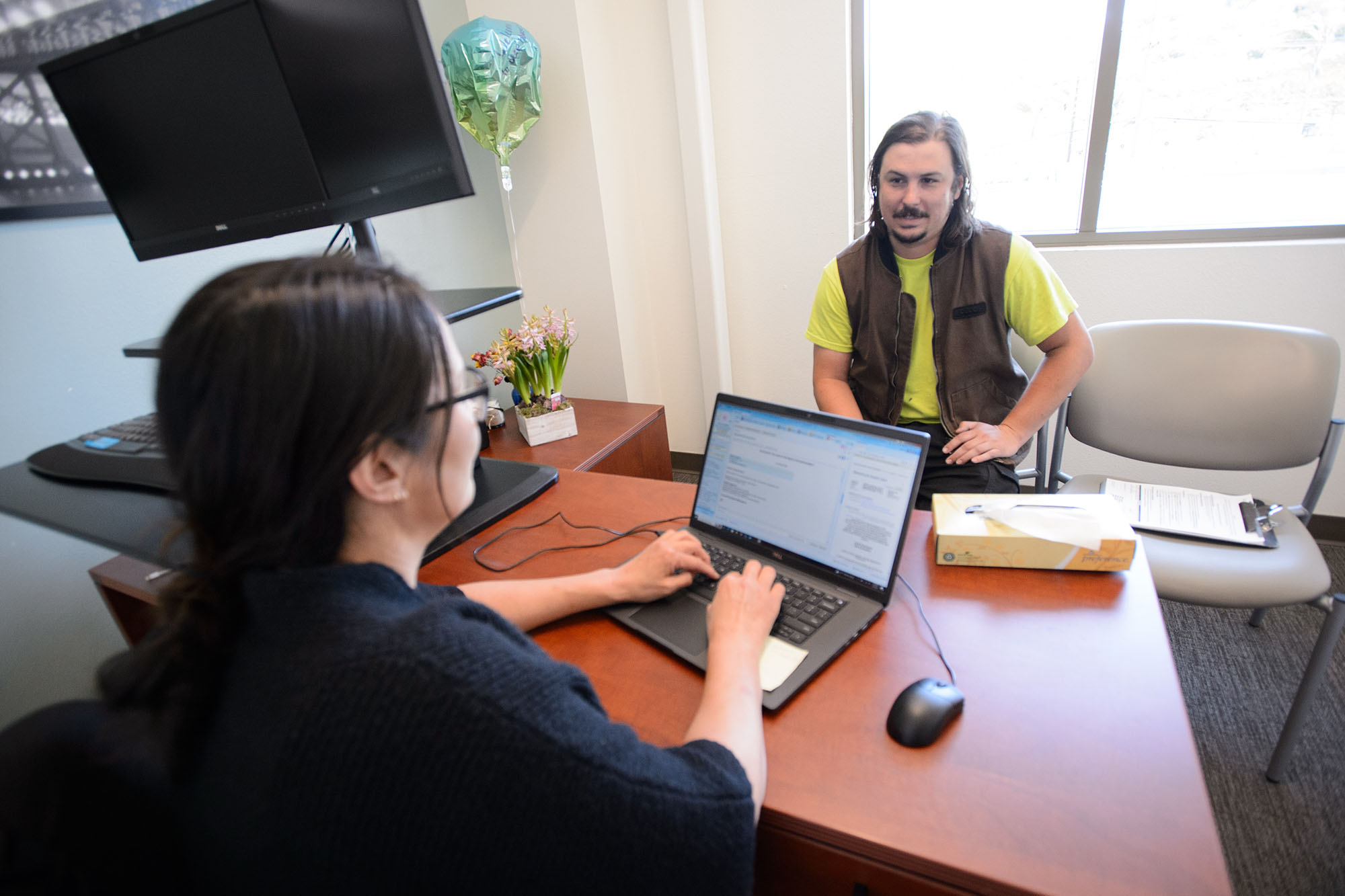|
Getting your Trinity Audio player ready…
|

Persistent systemic and institutional barriers deter most Spanish-speaking people from getting the mental health care they need. Only 35% of Latino/x adults in the US with mental illness get care, according to the National Alliance on Mental Illness. Many do not even seek help because of language barriers, lack of health insurance, poverty, stigma about mental illness within the Latino/x community, low provider numbers, and other hurdles.
Luis Suarez, MBA, a 37-year-old entrepreneur from Mexico, faced roadblocks himself when it came to accessing mental health support. Not long after moving to the US from Mexico, his life became a whirlwind. In just three years, he completed a master’s degree in business administration at Duke University’s Fuqua School of Business, moved to Chicago to pursue a management consulting career, and got married.
In 2020, while navigating the uncertainty around the pandemic, Suarez thought counseling would ease the stress, but when he searched for someone to talk to, it led to dead ends. “I couldn’t find a provider who spoke my language, shared my background, and would understand the circumstances of someone growing up in a Latin American country,” he said.
Soon, Suarez’s personal search for counseling became a broader search for data and statistics about his community that confirmed the gaps he could already see. “This was a problem,” he said. “In the US, only 5% of mental health providers speak Spanish, while 13% of the population speak Spanish at home.”
Then his frustration turned into a business idea. What if Suarez could build a platform to bring wellness resources to people like him?
Affordable Emotional Support and Counseling
The result was Sanarai, a subclinical mental health service for Spanish-speaking clients that connects the Latino/x community to mental health professionals in Latin America and the US for culturally sensitive, Spanish-language emotional support and counseling at affordable prices.
“As a [Latino/x] company, we realize the importance of cultural competency on mental health and well-being,” said Suarez.
Linguistically and culturally competent care is critical to the delivery of mental health services. Failure to interpret a patient’s words within the necessary cultural context often leads to misunderstandings and even misdiagnoses, which can in turn result in the wrong treatment being prescribed. Even with a qualified interpreter, how patients describe their feelings and symptoms can be lost in translation.
Suarez started the company in July 2020, when the COVID-19 pandemic both exacerbated mental health needs in Latino/x communities and uncovered profound racial and ethnic disparities in access to care. The prevalence of depression and anxiety among Latinos/x had grown significantly, and their suicide rates spiked by 6.8% from 2018 to 2021.
With financial support from a Google fund that supports Latino/x startups and an investment from the California Health Care Foundation’s Innovation Fund, Sanarai has built a network of more than 50 mental health professionals that serves more than 4,000 individual clients. The company even provides mental health services to the other entrepreneurs who are part of Google’s Latino Founders Fund — people like Suarez himself.
“The goal is to expand Spanish-language access to patients seeking mental health services in their native language,” said Vanessa Villaverde, MPA, MHSA, senior program investment officer at the Innovation Fund, which helps finance efforts to advance health care access in underserved communities. These investments support work that would be too costly for nonprofits to undertake, Villaverde said.
Two Types of Providers
Sanarai’s mental health and emotional support sessions are delivered by one of two types of providers: Mexico and Argentina-based professionals with a master’s degree in psychology and at least five years of experience who have been credentialed by health officials in Mexico, or state-licensed clinicians in the US with at least five years of experience working as clinical psychologists, social workers, or licensed professional counselors.
Individuals who speak Spanish should not be denied choices, Villaverde said. “No one should be forced to see whomever just happens to be available at that moment even if they don’t speak the same language as the patient,” she said.
The list of available providers can address a wide range of specific needs and preferences, and the platform lets people pick their provider based on specialty, gender, language, age, or main area of interest. Patients’ personal information is not shared, insurance is not necessary, and an initial 30-minute consultation costs only $20. Emotional support sessions of 50 minutes cost $49 and are paid out-of-pocket, and the site includes emergency resources as well as a blog with educational content. Sanarai offers next-day availability, alleviating the burden of waitlists lasting more than two weeks ̶ a common challenge faced by many Spanish-speakers.
“Clients are fascinated and love the service,” said Rosalinda Arriola, a social worker at Centro Unido Latinoamericano, a North Carolina community-based organization that provides support to underserved communities and refers patients to Sanarai. “It’s with someone who speaks their language and understands their culture,” she said. “They are left knowing that there is hope and that they can live a happy life.”
Sanarai’s chief operating officer, Julio Fu, MBA, met Suarez in 2015; the two were roommates while attending business school. When Suarez first talked about the company he wanted to create, it made sense to Fu, who is also from Mexico. “The idea just clicked,” Fu said. “It was a good start-up idea with an important social impact.”
Inspiring Feedback
Fu joined Sanarai after stints at Mercado Libre, McKinsey and Co., and Google. While the company is still in an early stage, both men are inspired by what they hear from people who have used its services. “It is very rewarding to receive the feedback of first-time users,” Suarez said.
“For the more than 42 million people in the US who speak Spanish at home, we are a convenient and affordable online alternative to get mental health services,” Fu said. And for providers in Latin America, the experience of working remotely with US clients is appealing, especially as Sanarai takes care of billing and helps with promotion.
The company sees reimbursement from Medicaid agencies like Medi-Cal and company-sponsored employee assistance programs as two long-term revenue pathways to growth. But for now, Sanarai is focused on building a direct-to-consumer business, strengthening its provider network, and exploring opportunities with payers, health systems, and other care providers.
Since recruiting more mental health providers in the US is challenging due to the limited size of the workforce, Sanarai may look to policy-enabled initiatives as alternate solutions. The 2002 pilot program that allowed Mexico-based clinicians to work in California, for example, could be a model for expanding the supply of mental health providers to fill the language and health needs of California patients, who currently make up approximately 20% of Sanarai users.
Looking to the future, Suarez is optimistic about Sanarai’s potential to transform the relationship that Latino/x people have to mental health.
“My hope is that mental health starts being taken as seriously as physical health, that we can raise awareness and break down that stigma and make mental health a part of the conversation in our daily lives, especially in the Latino community,” said Suarez.
Authors & Contributors

Silvina Martinez
Silvina Martinez is a public relations consultant specializing in health care and multicultural communications. A former newspaper reporter in Latin America and California and a medical interpreter herself, she works on health care initiatives and policies designed to expand access to care as well as educate and empower patients to take control of their health.

Zaydee Sanchez
Zaydee Sanchez is a Mexican-American visual storyteller, documentary photographer, and writer. Inspired by her upbringing in Tulare, in California’s agricultural San Joaquin Valley, her work is rooted in addressing the complexities of migration. With a focus on workers, gender, and displacement, she seeks to tell impactful, meaningful stories. Her work has been published in Al Jazeera, NPR, High Country News, palabra and more.



